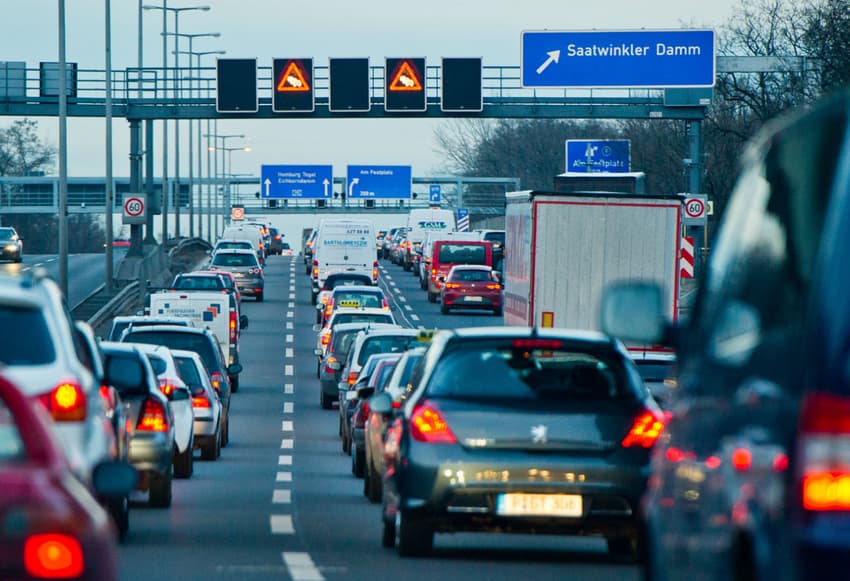How diesel emissions on German streets are threatening our health

Nitrogen dioxide levels on over half of busy streets in German cities exceed safe levels. Authorities say polluting diesel engines are to blame.
Measurements by the Federal Environmental Agency (UBA) show that in 2016, 57 percent of German streets with high traffic had levels of nitrogen dioxide that were higher than the safe limit of 40 micrograms per cubic metre, figures published on Tuesday showed.
“Nitrogen dioxide has been endangering our health for decades,” said UBA head Maria Krautzberger, adding that diesel engines were largely responsible for the health threat.
Krautzberger said that Germans “should not accept” that cities continue to allow polluting diesel engines to be driven through city centres.
There was better news regarding the level of particulates in the air. In 2016, the recorded levels dropped to a quantity not seen since the year 2000. Only in Stuttgart, which suffers from chronic pollution problems, did the levels exceed the EU’s recommended limit.
But the UBA warned that in one in four measuring stations, the levels of particulates exceeded the World Health Organization’s (WHO) safe limit, which is more stringent than that of the EU.
Both high levels of nitrogen dioxide and particulates can lead to breathing problems as well cardiovascular disease.
German carmaker Volkswagen has been embroiled in scandal since 2015, when US environmental authorities revealed that it had been using a technology which masked nitrogen dioxide emissions from its diesel engines.
The car giant recently came to an agreement with the US Department of Justice to pay $4.3 billion in fines there.
In 2015 the company also admitted to cheating on emissions tests in Europe.
Comments
See Also
Measurements by the Federal Environmental Agency (UBA) show that in 2016, 57 percent of German streets with high traffic had levels of nitrogen dioxide that were higher than the safe limit of 40 micrograms per cubic metre, figures published on Tuesday showed.
“Nitrogen dioxide has been endangering our health for decades,” said UBA head Maria Krautzberger, adding that diesel engines were largely responsible for the health threat.
Krautzberger said that Germans “should not accept” that cities continue to allow polluting diesel engines to be driven through city centres.
There was better news regarding the level of particulates in the air. In 2016, the recorded levels dropped to a quantity not seen since the year 2000. Only in Stuttgart, which suffers from chronic pollution problems, did the levels exceed the EU’s recommended limit.
But the UBA warned that in one in four measuring stations, the levels of particulates exceeded the World Health Organization’s (WHO) safe limit, which is more stringent than that of the EU.
Both high levels of nitrogen dioxide and particulates can lead to breathing problems as well cardiovascular disease.
Join the conversation in our comments section below. Share your own views and experience and if you have a question or suggestion for our journalists then email us at [email protected].
Please keep comments civil, constructive and on topic – and make sure to read our terms of use before getting involved.
Please log in here to leave a comment.